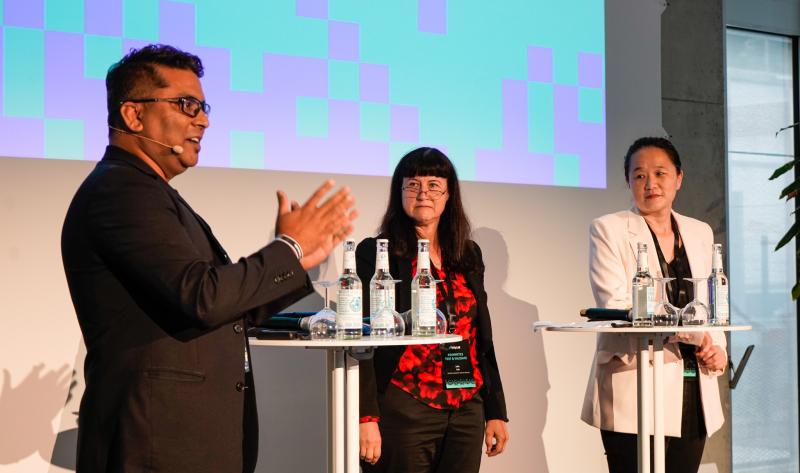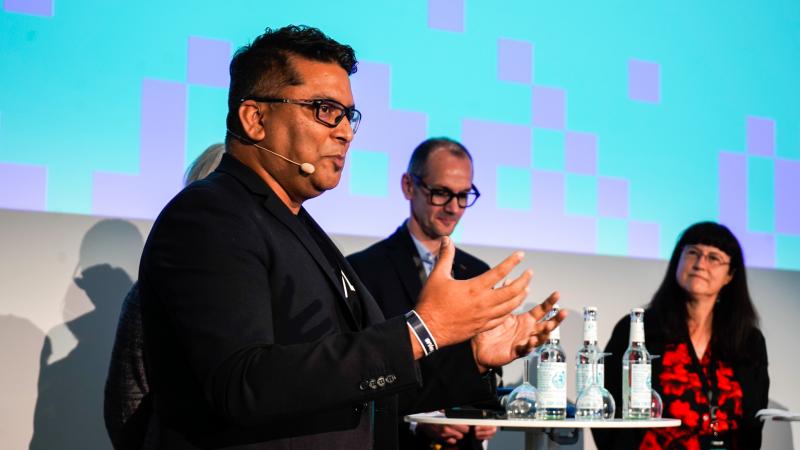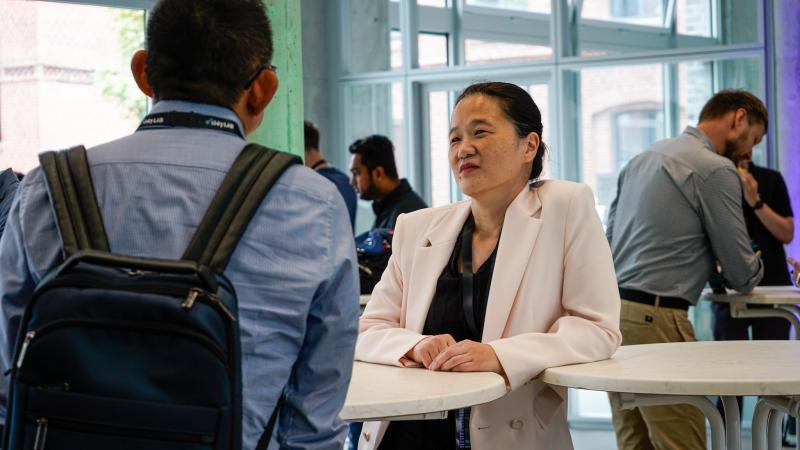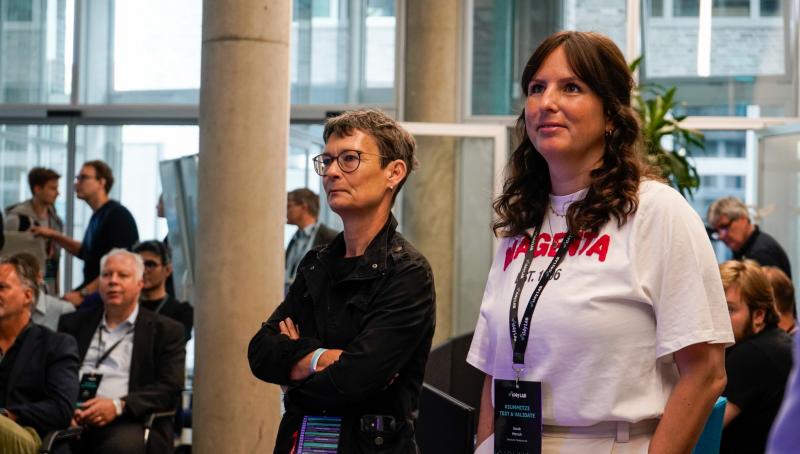“The next step is of course, then bringing the 80% baseline testing to the test vendors. And what we've seen in our 5G challenge is…the configurations on the test vendors, the software, it’s all proprietary. And the test vendors don't want another test vendor to develop these standardizations. They want a neutral party - government is that - to come together and come up with a standard framework to create this testing so that you're not locked into a specific vendor solution.” - Julie Kub
Global Lab Approaches to Open RAN Testing and Validation
i14y Lab Summit featured a panel discussion about collaborative testing and innovation strategies of Open RAN testing labs from all over the world. Here is an overview of what was discussed, but you can watch the complete discussion below.

About the Discussion
This year’s i14y Lab Summit featured a panel discussion titled "Global Lab Approaches to Open RAN Testing and Validation." Representatives from testing labs in Taiwan (Maggie Chao | ITRI), UK (Simon Burley | SONIC Labs), USA (Julie Kub | NTIA), and Germany (Katja Henke | i14y Lab) gathered to discuss the crucial role of labs in the Open RAN landscape and the importance of collaboration for success. Each speaker offered their own perspective of the Open RAN community and how to move forward.
One of the hot topics of the discussion surrounded certifications and badging methodologies. All of these labs play a vital role in a future plan of simplifying integration through certifications and badging. The i14y Lab itself hopes to build out the foundation for the area to certify and badge. “Our next step is really to go for permanent testing and that would build the foundation to go for certification badging,” stated Katja Henke, the i14y Lab panel representative and Senior Innovation Project Manager. Maggie Chao from ITRI also chimed in with ITRI’s perspective for important points to keep in mind when preparing for certification and badging by saying, “The most valuable part for this badging process is to let our vendors take this as a preparation, so that they can know how and what to enhance within their capabilities sooner and earlier in order to meet the requirements of their potential customer or their potential partners.” By establishing standardized testing protocols in collaboration with organizations like TIP and O-RAN Alliance, labs can make it easier for operators to integrate Open RAN solutions.
Future Innovation & Ensuring Self-Sustainability
To drive innovation in the Open RAN ecosystem, labs can provide guidance and support to industry newcomers, helping them meet the requirements of operators quickly. Sonic Labs for one has “a range of ecosystem engagement work streams,” noted Simon Burley. He continued by saying that Sonic Labs brings together “industry leaders and experts and researchers to ideate and collaborate on open problems such as RIC use cases,” in their attempt to play their part in fostering a multi-vendor ecosystem within the UK.
Julie Kub from NTIA also shared the United States’ method, “One of our missions for the US is to promote economy for many folks, not just have monopolies or monolithic vendors.” She continues, “Some of the bigger vendors can afford their own labs or they can afford their own testing, but we're talking about not tier one operators, not the big vendors that supply the equipment, but the smaller, facilitating the innovators. And eventually with the RIC, you're going to get into academics as well, getting into more innovation.” The group also encouraged the idea of creating these permanent testing scenarios and sharing best practices will enhance the capabilities of all industry players.

The panel’s global lab representatives also discussed how they plan to move towards self-sustainability. As most of these projects and labs are funded entirely or in part by governmental agencies, the move towards a profitable strategy is the next challenge. This future model has a long way to go until we get there as an ecosystem, but many of the labs around the world are taking steps towards being self-sustainable. For example, Maggie Chao explained how the ITRI lab in Taiwan is making moves:
“We start to think about the needs from the vendor, the needs from the operator, and maybe the needs from the core market owner. So how to coordinate all these needs. And then we try to identify the core value of the related stakeholder. For example, for our lab, maybe our lab's core value is about the technology and the experience for the testing. So maybe in the future we can focus more on the design of testing to do the troubleshooting, or maybe to do the local partner engagement. And then we can leverage the resources from other partners for the testing or for the operation if possible.” - Maggie Chao | ITRI

Collaboration among labs worldwide is key to the widespread adoption of Open RAN. Strategies like sharing collaborative forums, test cases, and methodologies will accelerate the market as a whole, enabling interoperability and driving innovation collectively. This panel discussion emphasized the pivotal role of testing labs in the Open RAN landscape. By focusing on certification and badging, fostering innovation, ensuring self-sustainability, and fostering global collaboration, labs can contribute to the success of Open RAN. Through collective efforts, the telecom industry can unlock the full potential of Open RAN and drive its widespread adoption.
For more information about the Summit and the presentations, including most slide decks and a full recording of the livestream, go to our i14y Lab Summit 2023 page:


i14y Lab Newsletter
Subscribe to the i14y Lab newsletter to get your monthly update on what’s going on in the lab, upcoming events, and other network disaggregation news.
